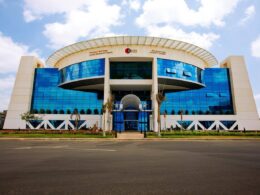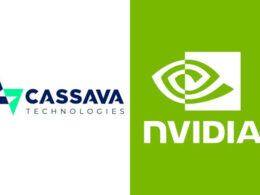In a city where power outages are routine, traffic is legendary, and internet costs remain punishing, something remarkable is happening: Lagos, Nigeria, has been crowned the world’s fastest-growing tech ecosystem for 2025.
According to Dealroom’s Global Tech Ecosystem Index 2025, which benchmarks 288 tech hubs across 69 countries, Lagos secured the #1 position in the “Rising Stars” category, outpacing established emerging markets like Istanbul, Pune, Mumbai, and Belo Horizonte.
The recognition isn’t just symbolic. Lagos has achieved an 11.6-fold increase in startup enterprise value since 2017, with its tech ecosystem now valued at $15.3 billion. The city has produced five unicorns—Interswitch, Flutterwave, Jumia, OPay, and Moniepoint—with unicorn creation tripling since 2019.
For a city that still battles daily power cuts and where average living costs sit at just 22% of New York City’s, this represents one of the most extraordinary tech transformations in recent history.
The Numbers That Tell the Story
The data behind Lagos’s ascent is staggering:
Funding Surge:
- Between 2019 and 2024, Lagos attracted over $6 billion in direct foreign tech investment, accounting for more than 70% of Nigeria’s total tech inflows
- In 2024 alone, Nigerian startups raised over $400 million
- Governor Babajide Sanwo-Olu disclosed that Lagos secured over $6 billion in direct foreign investment into its tech startup sector during this five-year period
Ecosystem Scale:
- By October 2024, 2,000 startups now call Lagos home
- Lagos accounts for 80-90% of Nigeria’s entire startup landscape
- 23 of Nigeria’s 28 fastest-growing companies, as recognized by the Financial Times, are based in Lagos
Market Dynamics:
- 38% of Lagos’s population shops online weekly, with internet penetration at 72% and mobile ownership reaching 94%
- The city adds approximately 2,000 new residents daily, with an estimated metro population exceeding 22 million
- Fintech dominates, accounting for approximately 40% of all tech companies
The Unicorn Factory: Five Billion-Dollar Success Stories
Lagos’s transformation into what locals call a “factory of unicorns” represents more than just valuations—it’s a fundamental shift in how African tech companies compete globally.
Flutterwave (2016) The cross-border payments giant processes transactions across 34 countries through its API-driven platform, with a $3 billion valuation. Key products include Flutterwave Rave (payment gateway), Flutterwave Send (remittance), and Flutterwave Store (e-commerce). The company connects African businesses to the global economy, serving everyone from Uber to small merchants.
OPay A mobile money and financial services platform known for its extensive agent network bringing financial services to Nigeria’s unbanked population. The company has become ubiquitous across Lagos, with agents visible on virtually every commercial street.
Moniepoint In October 2024, Moniepoint became Africa’s eighth unicorn after raising $110 million in Series C funding. The fintech processes digital payments for small businesses and has redefined point-of-sale infrastructure across Nigeria.
Interswitch (2002) One of the earliest players in Nigerian tech, Interswitch provides integrated digital payment and transaction processing services and is responsible for much of the infrastructure behind ATMs, payment cards, and digital transactions in Nigeria. Its Verve card scheme is Africa’s largest domestic card network.
Jumia (Public: NYSE: JMIA) Africa’s first tech unicorn and the continent’s largest e-commerce platform. Though publicly traded rather than a private startup, Jumia’s market cap exceeds $1 billion, making it a decacorn on public markets.
Innovation Born from Necessity, Not Convenience
What distinguishes Lagos from Silicon Valley or London isn’t just the numbers—it’s the DNA of how innovation happens.
Trixie LohMirmand, Executive Vice President of Dubai World Trade Centre and CEO of KAOUN International, who organized GITEX Nigeria 2025, noted that while startups in other economies “innovate because they want to, it’s nice to have,” in Lagos “the startups and the SMEs are creating solutions to problems that is born out of necessity and survival”.
This “resilience DNA” manifests in products designed to work despite infrastructure failures:
- Power-agnostic platforms: Built assuming electricity will be intermittent
- Low-bandwidth optimization: Designed for expensive, unstable internet
- Agent networks: Physical infrastructure replacing digital-only solutions where connectivity fails
- Mobile-first everything: Bypassing desktop entirely in favor of smartphones
LohMirmand stated this resilience is “world class,” enabling businesses to thrive despite challenges such as power outages, currency fluctuations, and developing infrastructure.
The results speak for themselves. When traditional banks couldn’t serve Nigeria’s 60%+ unbanked population, fintechs built agent networks. When logistics infrastructure proved inadequate, delivery startups mapped informal routes. When formal credit systems excluded small businesses, alternative lenders created data-driven underwriting models.
Government Backing: From Skepticism to Strategic Support
Unlike many African tech ecosystems that developed despite government indifference, Lagos has increasingly embraced its role as a digital hub.
Governor Sanwo-Olu articulated the vision clearly: “Governance in the 21st century must be digital, inclusive and data-driven”. This isn’t mere rhetoric:
Infrastructure Investments:
- Innovations like the integrated transport payment card, designed by engineers in their late 20s, is now used by over 6.5 million Lagosians across rail, waterways, buses, and taxis
- Deployment of hyperscale data centers and submarine cable landing stations
- City-wide fiber connectivity grid expansion
Direct Funding:
- The Lagos State Science and Innovation Council (LASIC) provides grants of up to N80 million (approximately $50,000-80,000) annually for startups
- Through December 2024, Lagos disbursed $330,000 through LASRIC to support 40+ startups
Talent Development:
- The DigiGap Program trained 500 young Lagosians in digital skills like Product Design and Digital Marketing in September 2024
- The 3 Million Technical Talent (3MTT) initiative preparing youth for global opportunities
- Partnership with Dubai World Trade Centre for GITEX Nigeria
The September 2025 GITEX Nigeria event symbolized this transformation. The concurrent GITEX Nigeria Tech Expo at Eko Hotel Convention Centre and Startup Festival at Landmark Centre drew over 20,000 visitors, 3,000 tech professionals, and nearly 1,000 startups, with 78 countries participating.
The Talent Paradox: Creating Unicorns While Losing Founders
Despite spectacular growth, Lagos faces a critical challenge: talent retention.
Etemore Glover of the Impact Investors Foundation noted: “Infrastructure remains a significant challenge—frequent power outages, steep data costs, and unstable internet hinder business operations. Talent retention is another issue, as skilled professionals often leave due to subpar working conditions and compensation”.
The phenomenon is visible across the ecosystem:
- Engineers leaving for London, Toronto, or Dubai with 3-5x salary increases
- Founders relocating headquarters while maintaining Lagos operations
- Product managers accepting remote roles with US/European companies
Yet paradoxically, this diaspora also fuels growth. Nigerian engineers working abroad often return with capital, networks, and experience—or invest remotely in Lagos startups. The city’s five unicorns demonstrate that despite Nigeria’s smaller economy compared to India or Brazil, Lagos can compete at the highest levels.
Beyond Fintech: Emerging Sectors Gaining Momentum
While fintech dominates—and will likely continue to for the foreseeable future given financial inclusion gaps—new sectors are emerging:
Logistics & Mobility: Companies building last-mile delivery networks, ride-hailing alternatives, and supply chain optimization tools for Africa’s fragmented infrastructure.
Healthtech: Telemedicine platforms, digital pharmacies, and health insurance tech addressing a healthcare system serving 220 million Nigerians with massive gaps.
Edtech: Online learning platforms, skills training, and certification programs targeting Africa’s youth demographic dividend.
Proptech: Startups like SmallSmall are transforming real estate, with the November 2024 WAPI summit highlighting Proptech’s growing impact on Nigeria’s property market.
Food Delivery: Lagos’ food delivery sector, led by startups like Chowdeck and FoodCourt, is projected to reach $2.4 billion in value over the next eight years.
The Dealroom Methodology: What the Ranking Actually Measures
Dealroom’s Global Tech Ecosystem Index benchmarks ecosystems based on measurables including investment, innovation, talent, and outcomes. The “Rising Stars” category specifically emphasizes:
- Growth in enterprise value: Not just absolute size, but rate of acceleration
- Unicorn creation: Adjusted for local GDP per capita
- Cost of living adjustments: Recognizing that $1 billion goes further in Lagos than San Francisco
- Startup value growth: Momentum over static valuations
- Funding volume: Both domestic and foreign capital inflows
- Talent pipeline: University output and skilled workforce development
The report specifically noted: “What sets Lagos apart is its ability to adapt quickly, develop locally relevant innovations, and scale despite systemic obstacles. This agility continues to propel the ecosystem forward”.
Importantly, Lagos doesn’t rank among “Global Champions”—the category for established ecosystems like Bay Area, New York, or London. That tier measures aggregate venture capital, enterprise value creation, and university collaborations at scale. Lagos’s recognition is for velocity, not absolute size.
The Africa Context: A Rising Continent, Not Just One City
Lagos’s success occurs within a broader African tech awakening. The Dealroom report identifies Johannesburg, Cape Town, Nairobi, Dakar, Kampala, and Accra as “density leaders”—ecosystems outstanding in innovation output per capita, with vibrant startup scenes and strong university-industry collaboration.
Key African developments in 2024-2025:
- The United Nations Development Program launched the Timbuktoo Fintech hub in Lagos as part of a $1 billion initiative to boost startups across Africa
- Increased intra-African cross-border payments infrastructure
- Pan-African venture funds raising larger vehicles specifically for the continent
- Major exits providing liquidity and validating the market
This decentralization means African innovation no longer flows through a single chokepoint. While Lagos leads Nigeria and West Africa, Nairobi dominates East Africa, Johannesburg anchors the south, and Cairo represents North Africa—creating a continental network of innovation hubs.
The Currency Crisis That Didn’t Kill Growth
Perhaps most remarkably, Lagos’s tech boom survived Nigeria’s brutal currency devaluation. In February 2024, the Central Bank of Nigeria devalued the naira, tightening spreads between official and market rates. For dollar-denominated valuations and USD-priced SaaS products, the impact was severe.
Yet the ecosystem adapted:
- Pivoting to local-currency revenue models
- Expanding to other African markets to diversify currency exposure
- Raising capital proactively before further devaluation
- Building products that work in low-ARPU (average revenue per user) environments
Despite these headwinds, Lagos’s ecosystem valuation grew 11.6 times since 2017, demonstrating resilience beyond typical emerging market vulnerabilities.
Challenges That Remain: Infrastructure, Regulation, and Reality
The celebration of Lagos’s ranking must be tempered with acknowledgment of persistent challenges:
Infrastructure Bottlenecks:
- Power: Frequent outages require backup generators, increasing operational costs 30-50%
- Internet: High costs and unreliable connectivity in many areas
- Transportation: Legendary traffic congestion affects talent mobility and logistics
- Banking: While fintech thrives, traditional banking infrastructure lags
Regulatory Uncertainty:
- Evolving fintech regulations creating compliance burdens
- Tax policies that can shift dramatically with political changes
- Foreign exchange controls complicating international operations
- Licensing requirements that vary across sectors
Funding Gaps:
- Series A to B funding (“the valley of death”) remains difficult
- Limited local institutional capital; heavy reliance on foreign VC
- Exit options constrained by small public markets
- Acquisition market underdeveloped compared to mature ecosystems
Brain Drain: As noted earlier, talent retention challenges persist, with skilled professionals seeking opportunities abroad.
What This Means for Global Tech
Lagos’s ascent carries implications beyond Africa:
For Investors: The risk-reward calculus has shifted. Early-stage African bets that seemed speculative five years ago now have proof-of-concept via multiple unicorn exits. Firms like Y Combinator, Sequoia, and Tiger Global have already positioned themselves; now second-tier VCs are entering.
For Global Tech Companies: Ignoring African markets—particularly Nigeria’s 220 million population—becomes increasingly untenable. Companies like Google, Microsoft, and Meta have established innovation centers in Lagos, recognizing both the talent pool and market opportunity.
For Other Emerging Markets: Lagos provides a playbook: leverage cost advantages, solve local problems at scale, build resilient infrastructure-agnostic products, and attract diaspora talent and capital. Cities from Accra to Jakarta are watching closely.
For Founders: The message is clear: you don’t need Silicon Valley infrastructure to build billion-dollar companies. Constraint breeds innovation. Solving hard problems in difficult markets can produce globally competitive products.
The 2025-2030 Outlook: Sustaining Momentum
Can Lagos maintain this trajectory? Several factors will determine the answer:
Positive Indicators:
- Demographic dividend: 60% of Nigeria’s population under 25
- Continued government investment in digital infrastructure
- Growing sophistication of local VC ecosystem
- Maturing exit market as early startups reach acquisition/IPO stage
- Expanding middle class driving consumer tech adoption
Risk Factors:
- Economic instability and currency volatility
- Political uncertainty affecting policy continuity
- Competition from other African hubs for talent and capital
- Infrastructure gaps that could constrain scaling
- Potential regulatory overreach as fintech matures
The next critical milestone will be Lagos producing its first decacorn—a $10 billion company. Current unicorns are scaling toward that threshold, but reaching it will require sustained growth despite macroeconomic headwinds.
Lessons from Lagos: What the World Can Learn
Lagos’s journey from dismissed emerging market to #1 growth ecosystem offers several transferable insights:
1. Necessity-Driven Innovation Scales Products built to solve existential problems in harsh conditions often prove more resilient and adaptable than “nice-to-have” innovations from comfortable markets.
2. Constraint Breeds Creativity Limited infrastructure forces innovative solutions—mobile money thrived in Africa precisely because traditional banking failed to reach the masses.
3. Diaspora Networks Multiply Impact Nigerian engineers globally create capital flows, knowledge transfer, and international networks that accelerate ecosystem development.
4. Government Can Catalyze Without Controlling Lagos demonstrates that strategic infrastructure investment and grants, without heavy-handed regulation, can accelerate ecosystem growth.
5. Cost Advantages Matter At 22% of New York City costs, Lagos offers early-stage companies dramatically longer runways, making experimentation feasible.
6. Local Solutions Win Local Markets Understanding culturally specific payment behaviors, trust dynamics, and market structures creates defensible competitive advantages against international entrants.
The Bottom Line: A New Chapter in Global Tech
Lagos’s crowning as the world’s fastest-growing tech ecosystem in 2025 marks more than a statistical achievement. It represents a fundamental shift in where innovation happens, who builds it, and what problems matter.
For decades, the global tech narrative centered on Silicon Valley, with secondary hubs in London, Beijing, and Bangalore. That era is ending. The next wave of unicorns will emerge from cities that previous generations of investors dismissed—cities with challenging infrastructure, complex markets, and enormous underserved populations.
Lagos won’t replace Silicon Valley. But it doesn’t need to. Instead, it’s creating a parallel innovation model: scrappy, resilient, locally-rooted companies solving problems that affect billions of people across emerging markets.
As Trixie LohMirmand noted at GITEX Nigeria: “This is not the global ecosystem joining Nigeria—it is the global ecosystem turning its attention to Nigeria. You didn’t just join the list, you went straight to the top”.
That top spot, earned despite power cuts and currency crises, traffic and infrastructure gaps, represents something profound: proof that the future of tech isn’t just being built in wealthy, stable markets with perfect infrastructure. It’s being forged in cities like Lagos—where necessity demands innovation, and innovation creates billion-dollar companies.
The question now isn’t whether Lagos belongs among global tech leaders. The data settles that debate. The question is what happens next—whether this momentum compounds into a generation-defining ecosystem, or whether challenges constrain growth. Either way, the world is watching Africa’s megacity, and the story is just beginning.













Comments 2